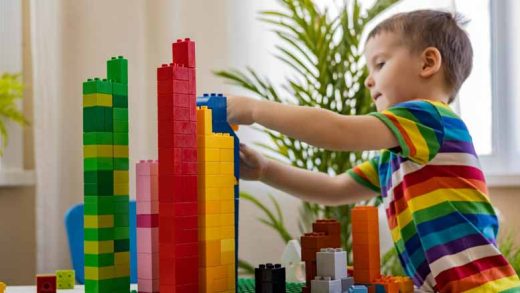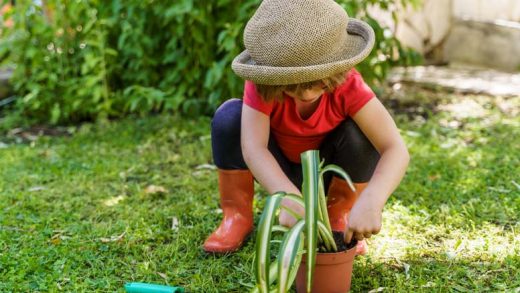Preschool is a very important period for your child’s development in many ways, including social, physical, cognitive, language, and adaptability. When preschool starts, most kids are at least three years old. They stay in preschool for around two years before starting kindergarten.
This article will provide you with an overview of the abilities that children acquire in preschool and explain how preschool teachers support their growth into their full potential.
Preschool: Why Is It Important?
A child’s brain develops more quickly and profoundly throughout the first five years of life than it does at any other point in its life. Pre-schoolers’ brains grow faster in their first five years than at any other time. That’s why preschool is so vital. Preschool teachers make learning for preschoolers interesting and they teach things beyond what kids learn at home. Kids get social time too. This lays a strong future foundation.
Which Skills Do Kids Need To Improve In Preschool?
Early childhood education offers your kid the chance to expand and enhance their fundamental abilities, equipping them for a lifetime of education and enabling them to positively impact their surroundings.
The following ten abilities are things your preschooler should learn:
- Development of Emotions
- Social Skills
- Early Development of Literacy
- Skills in Listening
- Communication Capabilities
- Fine Motor Skills
- Focus Duration
- Preschool Mathematics
- Problem-Solving Abilities
- Creativeness
Preschool should assist your child learn how to recognise and comprehend both his or her feelings as well as those of others. This entails being able to identify emotions as well as control them and the actions that go along with them.
Preschoolers learn how to respect and get along with others through cooperative play and studying alongside one another, which enhances their language, self-control, and general social skills. During structured learning projects or creative play, teachers assist students in resolving conflicts.
Children can start learning to write their names and read simple words by the time they are three years old. Their preschool experience prepares kids for success in kindergarten and primary school when it comes to developing their reading.
A child’s total social and academic learning depends on the child’s development and listening skills, which allow them to follow instructions and comprehend what is being taught to them. Preschool settings encourage activities that help your child develop their listening abilities.
Kids need speaking and body language to get what they want or ask questions. They show feelings through communication. Preschool teaches these important skills. Teachers help kids express themselves.
Young kids use markers, scissors, sculpting, and crafts to practise hand control. This helps muscle growth for writing, drawing, or tying laces later on. The fine motor skills kids develop through play make them ready for challenges ahead.
We can all relate to how challenging it may be for young students to focus and remain still for extended periods.
Preschools provide a controlled, caring setting that helps youngsters develop their attention spans in preparation for the more demanding classroom environments that come next.
Preschoolers who learn to recognise numbers and count objects are better able to understand the applications of mathematics in everyday life. This provides the groundwork for the increasingly sophisticated mathematical curricula that follow.
You need problem-solving skills for everything: school, friends, and most importantly, living. Preschool is the best time to start building this talent through play, tasks, and hanging out with others. Teachers can foster problem-solving abilities through games and social interactions.
When a child is allowed to express themselves creatively, they become more self-assured and can view problems from several angles. Engaging in artistic endeavours supports kids in forming their distinct identities and serves as a means for caregivers to acknowledge and value each child’s individuality.
What Goal Does A Preschool Teacher Have?
Preschools with smaller class sizes give kids one-on-one time. Teachers make sure each child gets full support. They focus on all parts of education.
Teachers plan lessons, educational games, and activities based on each kid’s interests. This helps make learning fun and boost skills development like creativity, problem-solving, and social development. Kids build a love of learning through tailored instruction.
Preschool teachers follow state Early Learning Standards. This outlines important skills and knowledge for different ages.
Here are a few examples of the ways preschool teachers help children to develop age-appropriate skills development:
- Development of Thinking Skills
- Development of Reading Skills
- Development of Writing Skills
- Development of Math Skills
- Development of Linguistic Skills
Everything You Need to Know about Game-based Learning
Game-based learning for Preschoolers can be engaged with games that enhance their learning process and help them stay focused. Games help in preschoolers development and make them learn and pay attention. Kids are engaged when they play games. They look around and try new things to win. Doing activities like these increases preschoolers’ development of thinking skills. It helps them problem-solve, make choices, and think deeply. And it’s fun for little kids!
Young minds absorb knowledge effortlessly when learning is disguised as play. Shapes, colours, letters, and numbers become familiar through engaging games. Furthermore, these educational activities foster imagination, concentration, and creative thinking skills. Kangaroo Kids International Preschool offers an environment where our educators and parents collaborate to make learning for preschoolers an enjoyable experience. To learn more about our curriculum, contact us today!









